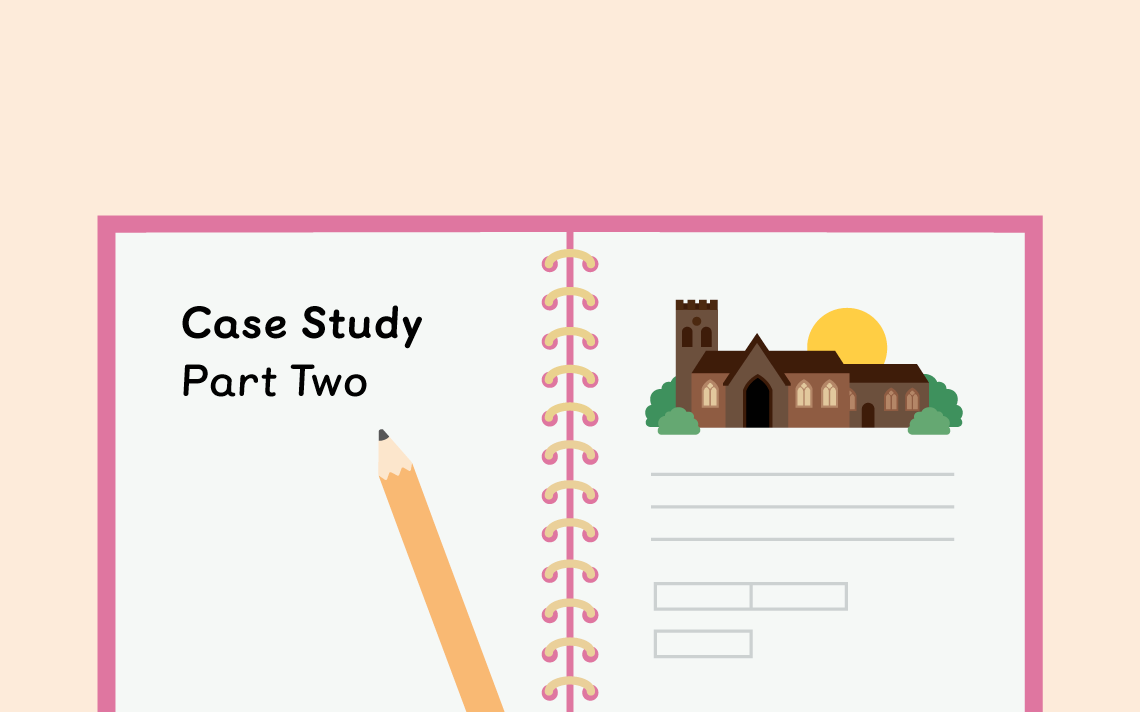A maths mastery success story with St. Bridget’s Primary School Part II
Editor’s Note:
The following is an excerpt from an interview that took place in May, 2022 via videoconference with Headteacher Neil Le Feuvre, Assistant Headteacher Ryan Neal and Maths Lead Rosie Ross at St. Bridget’s C of E Primary in Wirral, UK. The interview was conducted by Chris Fournier, senior copywriter at Maths — No Problem! This is the second part of our interview with the accredited school
“Maths — No Problem! is really ‘less is more’. We spend longer on that initial hook lesson; we are using those low floor, high ceiling tasks. Everybody can notice something; everybody can say something. So every student has that sense of achievement.”
– Rosie Ross
Q6: What is it about Maths — No Problem! that’s been so successful for you?
Rosie Ross: It’s discussion led. There’s a lot of unpacking and a lot of modelling. You are not teaching a trick to a child. You’re not procedurally driven because it’s very conceptually driven. You’re teaching concepts. The children themselves are able to say, “Oh, we’re dealing with a concept here, and we are looking at this concept in this particular way.”
Maths — No Problem! has beautifully scaffolded lessons with those beautifully thought out, intelligent, practice examples. You’ve got that initial discussion. You are taking what pupils are saying and you’re rephrasing it for them to listen to. There’s that metacognition. “This is what I’m thinking and this is what I think about my thinking.” And, “This is what I think about my friend’s thinking.” You’ve got that time to journal, so there’s that moment of calm to just reflect on our own thinking. Children leave their classes feeling satisfied.
Q7: Have you noticed if maths mastery strategies have affected other subjects at St. Bridget’s?
Ryan Neal: With GPAS (Grammar, Punctuation, And Spelling), we took the idea of journalling into our lessons. This was because some pupils expressed that journalling felt like a safe space where they were able to record their thinking without worrying that we were going to swoop in. Now, when a concept is introduced, children have a chance to reflect, to record their thoughts and their ideas on how to apply what they’ve learned.
Rosie Ross: We’ve also looked at the structure of the lesson as well. We’ll start many of our lessons now with some kind of hook. Cognitive overload theory has been helpful too. Just thinking about what the golden thread in the lesson is, because Maths — No Problem! is really clear about, “This is the thing that we are learning today.”
We’ve also done a lot more of ‘why something is’ and ‘why something isn’t’ outside of maths, which is a teaching method that’s built into the Maths — No Problem! Programme. That idea that ‘we know something is something because it’s not this.’
Q8: What would you tell other schools who are considering the maths mastery approach?
Rosie Ross: What other schools need to know is that sometimes it takes time. This doesn’t happen overnight. The schools that I’ve worked with that have been most successful are the ones that will come back and look again. And years down the line, they’re still asking questions, they’re still learning and willing to talk about it.
Ryan Neal: It’s about having the confidence as a school leadership team to say, “Right, this is the approach. We’re going to have to invest time and patience in it,” because you have so many different levels of confidence among staff. Some will take to it like they’ve been doing it forever, and you’ll have some who will be absolutely terrified because they’ve taught a different way for so long.
At the end of the day, it’s about having the patience and faith that the resources are there, the research supports the approach, and the materials have been thought through to the ninth degree. Then, it’s just making sure that you give your teachers time and support.
Become Qualified to Make a Difference
Empower yourself to create a lasting impact in pupils’ lives. Gain maths mastery certificates that will represent all you’ve accomplished and learned in your teaching journey.
From Fellow, to Expert, to Master — you can take the pathway to certified success!

Q9: Have you seen a culture shift regarding maths mastery at all in your wider region or in the UK?
Rosie Ross: There’s been a national drive through the NCETM (National Centre for Excellence in Teaching Maths). Debbie Morgan, who’s the director of the Maths Hub, brought out what are called the professional development documents, which are supposed to help schools unpack teaching mastery. And they work beautifully alongside the Maths — No Problem! materials.
When I first saw these documents, I was like, “That’s why Maths — No Problem! is written the way it is.” It’s true to the national agenda. The problem is some people’s interpretation of mastery. Some might think, “Okay, if I use this textbook, suddenly I’m teaching to mastery.” No, you’re not. At a minimum, we agreed as a staff that it was a five-year project.
Q10: If you’ve had any children that have gone all the way through Year 1 to Year 6 using the Maths — No Problem! Programme, can you share with us their experience with maths? How do they perform at maths now?
Neil Le Feuvre: We actually don’t get much feedback because it’s going so well. When our children go to secondary school, they still continue to be very strong mathematicians.
Rosie Ross: We don’t just stop our interest in them at Year 6: we are trying to create those lifelong learners, and we are trying to create those mathematicians for the future. We want our children to have that option to do A-level maths and to see that as a viable option. And all of that structured teaching, all of that journalling, actually does impact on their progress as they get into secondary school as well.
